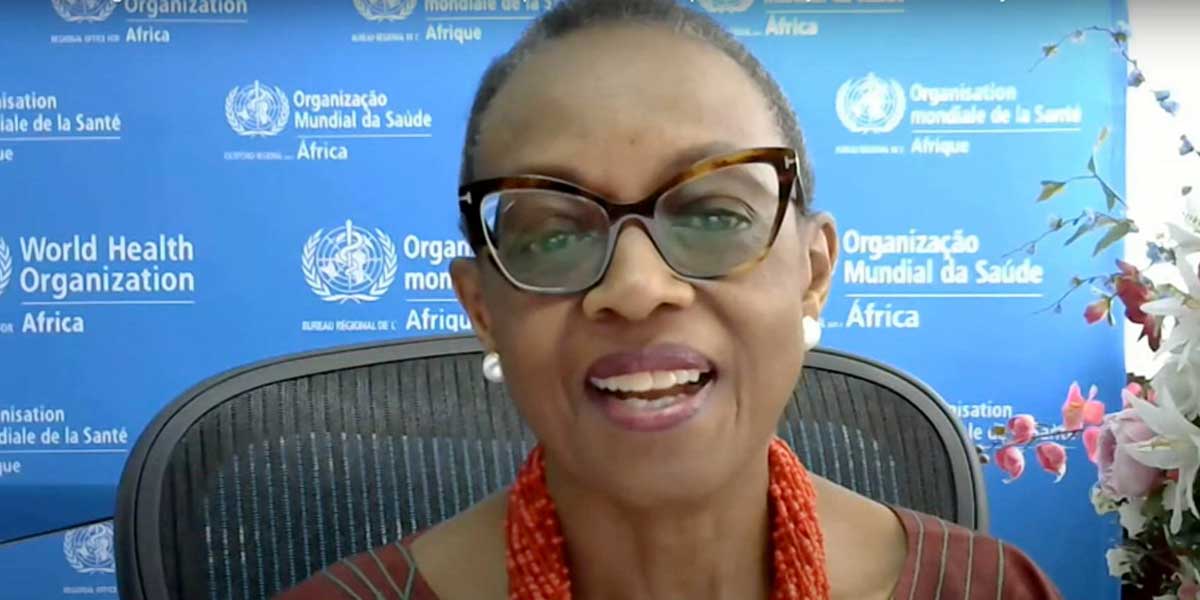
In 2017, WHO warned that the global response to malaria had reached a crossroads. After 15 years of success in global malaria control, progress had levelled off, and many countries with a high burden of the disease were losing ground.
According to the latest World malaria report, published in November 2020, progress continues to plateau and – without urgent action – the 2030 targets of the WHO global malaria strategy will be missed. The COVID-19 pandemic poses a serious additional challenge to the delivery of malaria prevention, detection and treatment services worldwide.
In view of these worrying trends, WHO has called for new approaches to global malaria control that are shaped, first and foremost, by the voices and perspectives of frontline health workers and communities.
One such approach, “High burden to high impact,” is being led by 11 countries that carry the highest share of the global malaria burden. Launched in 2018 and supported by WHO, this approach aims to reignite progress in the fight against malaria through 4 key actions: political will to reduce malaria deaths; strategic information to drive impact; better guidance, policies and strategies; and improved coordination.
‘RETHINKING MALARIA’ CONSULTATION
Through a year-long global consultation, Harvard University convened more than 200 stakeholders to share their views on malaria challenges and opportunities in the context of COVID-19. The overall goal was to identify “novel, game-changing approaches” to the malaria crisis.
To support this process, WHO coordinated a consultation with thought leaders from across sub-Saharan Africa, the region that accounts for approximately 94% of the global malaria burden.
Key findings from these discussions were shared in the “Rethinking malaria” virtual forum on 1 September, chaired by Professor Rose Leke, Emeritus Professor of Immunology and Parasitology at the University of Yaoundé, Cameroon.
VIRTUAL FORUM
“This process was fundamentally rooted in listening and learning from those on the frontlines of malaria control – especially those individuals working in Africa where the majority of the malaria cases and deaths occur,” said Professor Leke in her opening remarks at the forum. “Many of the findings are relevant for other malaria-endemic regions,” she added.
Dr Leke said that the urgency of the global pandemic had highlighted the need for the malaria community to rethink its strategy and take a critical look at current approaches to controlling the disease. She noted that progress towards the targets of the global malaria strategy had stalled and that a “course correction” was needed.
Speaking on behalf of WHO, Dr Matshidiso Moeti, Regional Director for Africa, said: “We are determined that the 2030 target of reducing the malaria burden by 90% compared to the 2015 baseline be reached. It is clear however that, to do this, ‘business as usual’ is not an option.” She added: “This is why we have started the process of rethinking malaria in Africa; we are taking a step back and reflecting on how interventions to prevent, control and eliminate malaria can be reimagined.”
Highlighting some early results from the “High burden to high impact” approach, Dr Moeti noted that 8 of the 10 focus countries in Africa had developed malaria stratification maps showing how cases, deaths, access to health services and malaria interventions intersect, and that targeted responses have been launched based on this data.
The forum also included an intervention from President Yoweri Museveni of Uganda, who committed to leading the malaria response in his country, as well as a panel session focused on lessons learned from 2 countries that have eliminated malaria: China and Sri Lanka. China reported 30 million cases of malaria annually in the 1940s, and Sri Lanka also carried a high burden of the disease in the past. By achieving and maintaining zero cases of malaria, these countries provide inspiration and hope for others facing a high burden of the disease today.
KEY RECOMMENDATIONS
The year-long “Rethinking malaria” global consultation was organized across 3 workstreams: governance, integrated service delivery, and training & capacity building. During this week’s virtual forum, the workstream co-chairs shared key recommendations and themes that emerged from the discussions. These included:
-Perception of the malaria problem. Malaria needs to be viewed as a societal problem of development, and not as a medical problem alone.
-Leadership of the malaria problem. Efforts must be led by endemic countries in partnership with multiple stakeholders within each country.
-Investment in the health workforce. Health workers at all levels should be empowered through readiness, training and education.
-Visibility and use of reliable and real-time data, knowledge and information. Malaria data needs to be valued and visible and used by the public and policy-makers, as it has been for COVID-19 decision-making.
-Innovation. Globally, greater attention should be given to innovation and problem-solving and to support endemic countries in entrepreneurship, R&D and manufacturing.
-Strengthening health systems. Health for all means solving the problem of malaria as a pillar of universal health coverage.
NEXT STEPS
The “Rethinking malaria” deliberations will be further shaped over the coming months into concrete actions by African policy-makers and regional stakeholders – actions that are informed by the voices of frontline health workers and communities. Stakeholders will identify ways to go beyond identifying what needs to change to how to make those changes happen. The process will draw on the rich experiences from malaria-endemic countries, including those pioneering the “High burden to high impact” approach. (WHO.int)























